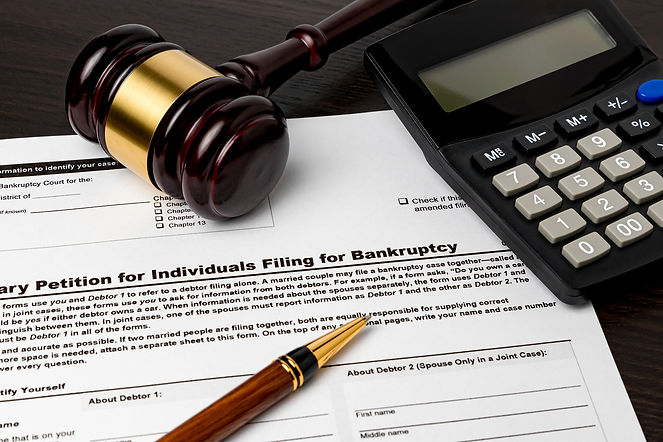
Bankruptcy
Thinking about filing bankruptcy? You’re not alone. Thousands of people file for bankruptcy every month. At its best, filing bankruptcy is a very complex thing to do. Even though it is complex, it can be necessary. You’re likely to have question after question and the best place to find answers for your specific situation is with a bankruptcy attorney. If you’re looking for general bankruptcy information, you’re in the right place.
How do I know which type of bankruptcy to file?
The type of bankruptcy you’ll file depends on the type of financial trouble you are in. The two main types of bankruptcy are Chapter 7 bankruptcy and Chapter 13 bankruptcy. Learn about the differences below.
What is the difference between Chapter 7 and Chapter 13 bankruptcy?
Chapter 7 and Chapter 13 bankruptcy are the two main ways to file bankruptcy as an individual. While Chapter 7 will liquidate your assets, Chapter 13 will adjust your debts and you will still repay them.
Chapter 7 Bankruptcy
Chapter 7 bankruptcy can be filed by a business or an individual but you must qualify for it. It is most common for getting rid of unsecured debts, which are debts not related to property . What are unsecured debts?
-
Credit card
-
Medical bills
-
Payday loans
-
Store credit cards
-
Utility bills
Chapter 7 bankruptcy is generally a good option for people who have a very low income or are unemployed. To see if you qualify for Chapter 7, you will have to take a means test. The means test determines whether or not your income is low enough for your debts to be discharged.
Chapter 13 Bankruptcy
Chapter 13 bankruptcy is used primarily to stop a foreclosure on your home. You do not need to take a means test to see if you qualify for Chapter 13. Instead, qualification is based on your capacity to repay your total secured debts. Through Chapter 13 bankruptcy your debts do not get washed away; they get restructured into a more manageable, interest free payment plan so you can breathe a little easier. Chapter 13 bankruptcy is generally a good option for people who are sizably behind on their bills but also have a steady income. This way you can still repay your mortgage debts and stop foreclosure on your home. This may also help with keeping your car or other possessions while you pay them off. Contact a local bankruptcy attorney to discuss your specific case and get all of your bankruptcy questions answered. We are NOT a law firm and are not lawyers.
Benefits
-
Bankruptcy may save your home from foreclosure.
-
Bankruptcy can provide quick debt relief. (within months)
-
Bankruptcy can stop wage garnishment.
-
Bankruptcy can be used to cease or stop creditor harassment.
-
Certain debts will be “discharged” in bankruptcy.
Downside
-
Chapter 7 bankruptcy could lead to the possible loss of nonexempt property.
-
Bankruptcy can ruin a person’s credit for 7-10 years.
-
Attorney fees can be high, plus court fees, plus pre-bankruptcy credit counseling fees and possibly more fees for the credit education course required after filing.
-
Chapter 13 bankruptcy payment plans can last for five years, and a consumer’s payment will typically be higher than what it would be on a debt settlement program.
-
Credit Card Relief Programs including debt settlement and debt management are much better options for consumers needing debt relief if they can qualify. However, sometimes consumers will not qualify for these programs and bankruptcy is their only option.
-
It is important for consumers to read and get educated for free, before joining on any program.
